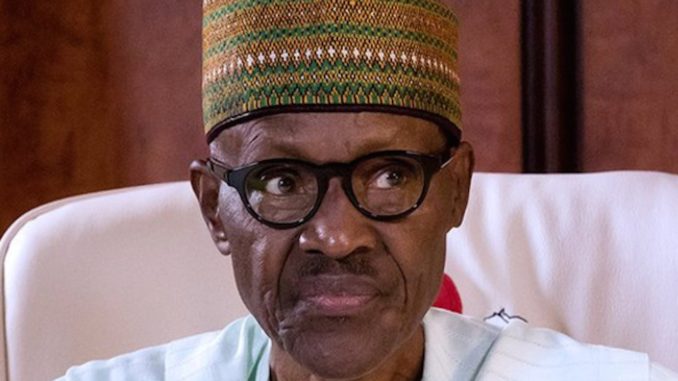
Inflexible as ever, President Muhammadu Buhari recently knocked advocates of a fundamental restructuring of the country as “lazy” people who could not define the term. Rather than use the opportunity of his meeting with the Nigerian community in France to lay out a vision for a country in urgent need of direction, he relapsed into his usual defence of a subsisting, restrictive system that, by universal consensus, is anomalous. But he is wrong on all counts: much rigour and critical thinking have gone into the campaign, just as the basics of restructuring have been well laid out.
Buhari had said in France: “There are too many people talking lazily about restructuring in Nigeria. Unfortunately, people are not asking them individually what they mean by restructuring. What form do they want restructuring to take? Do they want us to have the three regions we used to have? And now we have 36 states and the FCT. What form do they want? They are just talking loosely about restructuring. Let them define it and then we see how we can peacefully do it in the interest of Nigerians.”
He’s wrong. Outside of those who are hard of hearing and the beneficiaries of the current scheme, there is actually no controversy over what restructuring is: yes, there are diverse suggestions as to geographical format, but the basics of federalism are well established globally.
Contrary to Buhari’s position, his party, the All Progressives Congress, had unambiguously placed restructuring on its agenda. It went further to empanel a committee headed by the Kaduna State Governor, Nasir el-Rufai, which made fundamental recommendations in a report handed over to our obdurate President over a year ago. For the party’s leader to deny restructuring, therefore, is deceptive.
Pioneer advocates of restructuring are definitely not lazy. Apart from books, lectures and presentations based on rigorous research, the late Obafemi Awolowo, his associates and admirers have devoted energy to articulating the elements of federalism. The late nationalist, Anthony Enahoro, even in his eighties, through his PRONACO initiative, assembled activists and representatives of Nigeria’s diverse nationalities to proffer suggestions on the shape of federalism in this country. Nigeria’s brightest and best, have laboured to point out the self-defeatist nature of today’s system that accords so much power to the centre and impoverishes the 36 states.
As to the meaning, it is established wisdom that a multi-cultural and multinational polity must necessarily be organised as a federal entity with considerable autonomy shared by the federating states and the central government. As the APC panel recommended, the existing 36 states should have control of their natural resources, have their own police forces and have authority over local government administration. No federal system reduces states to surviving only through federal allocations. And the advocates he dismissed as lazy are actually the majority of Nigerians.
While Buhari was sounding off in Paris, Vice-President Yemi Osinbajo was laying out the minimum conditions for true federalism – state policing, fiscal autonomy and resource control. Seven of the world’s largest countries by size are federal; others with diversity in nationality and culture such as Ethiopia, Malaysia, Switzerland and Belgium also operate federalism. Even in populations with a large measure of cultural homogeneity like the Germans of Germany and Austria and, to some extent, the USA, Canada and Australia, federalism has been found to be best suited for them.
The principles of federalism were also recognised and forcefully argued at the series of pre-independence conferences by the late premier of the defunct Northern Region, Ahmadu Bello, and his colleagues like the late Aminu Kano, Ibrahim Imam and Tafawa Balewa, the first federal prime minster. They, like today’s advocates, were neither lazy nor talked “loosely.”
But time is running out for peaceful, orderly remodelling. Many nationalities are restive, the economy is broken and the single policing system has proved its inadequacy in a diverse, changing environment. Restructuring means states should have control of and retain at least 50 per cent of revenues generated from natural resources on their land – minerals, farm produce and crude oil; they should run autonomous police forces side by side with the federal police with their powers clearly defined; states should retain proceeds of VAT or other sales tax and remit a mutually agreed portion to the centre, while the Federal Government should take its hands off primary and secondary education, limiting itself only to support. Federal control over foreign affairs, defence, immigration, currency and customs remains intact.
Indeed, advocates of restructuring should continue to press for it to ensure Nigeria’s corporate survival. It should be a major campaign issue in this electoral season. Unlike in the past, when deceitful politicians made promises only to renege once in power, the electorate should demand detailed, firm promises, plans and timelines on restructuring from all parties and candidates seeking elective offices.
END

Be the first to comment